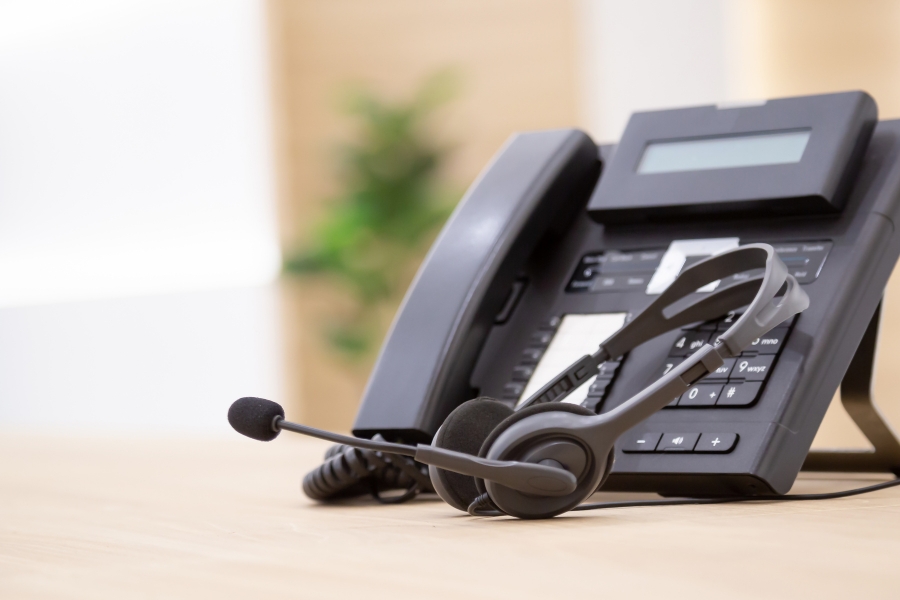“Hello, thank you for calling Legal Aid Alberta. May I have your date of birth and name, please?”
This is how Sarah begins her morning shift and every phone call as a Contact Centre Intake Officer (CCIO) at Legal Aid Alberta. At 8:15 a.m., Sarah answers her first call, ready to help and make a difference for Albertans in the justice system.
The first caller is a woman seeking help with an immigration and refugee law matter. Sarah listens attentively, her fingers swiftly creating a profile while focusing on listening to the person’s story. CCIOs frequently handle sensitive information. Some details that can be difficult for callers to share with a stranger over the phone. Compassion is a critical skill.
Sarah’s knowledge of Legal Aid Alberta’s service guidelines and internal systems shines through as she efficiently determines the client’s eligibility for assistance.
“It’s rare that the first call of the day is about refugee law matters,” Sarah notes. After thoroughly gathering details from the client, she decides on the next step to advance the matter in the process and documents all the details in LAA’s secure database.
“The most satisfying part of this job is connecting clients with their lawyers,” Sarah says. “There is often a huge sigh of relief when we let a client know they qualify for legal aid assistance or when we provide them with their lawyer’s contact information.”
Demand for legal aid never stops
LAA is often the first point of contact for Albertans involved in the justice system. The Contact Centre handles approximately 80,000 calls a year from all over Alberta. Apart from handling new callers, CCIOs also help process applications with criminal charges through LAA’s Client Gateway. The Gateway is a secure online form that LAA lawyers can use to help individuals at court apply for legal aid coverage. CCIOs then process client information to determine eligibility.
For Sarah, being a lifeline for those in need of legal support is a daily reality. Calls come from hospitals, jails, police stations, and mental health facilities. Some people need help with family matters or criminal offenses, while others check case updates or ask about repaying bills. No matter what the call is about, Sarah navigates heightened emotional states carefully and skillfully.
“It doesn’t matter what you hear over the phone. You have to be professional and neutral.”
Contrary to common misconceptions, LAA clients encompass a wide spectrum of individuals. While some face financial hardships and homelessness, others are gainfully employed, striving to make ends meet living paycheque to paycheque.
In a three-hour morning shift, Sarah touches 16 different lives, each with their own struggles and stories. “The most rewarding moments come when we have completed the application process, and a client expresses their gratitude and appreciation.”
“I feel like I have done a good job creating a safe place for them to take the first step toward receiving legal support.”


